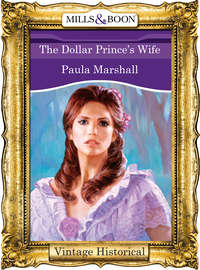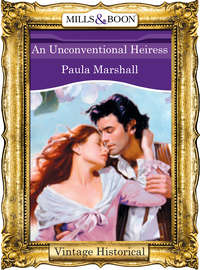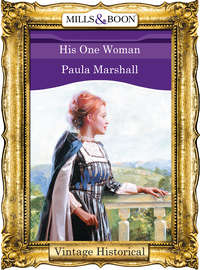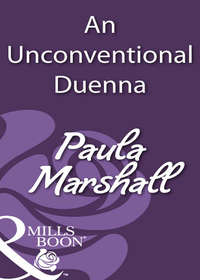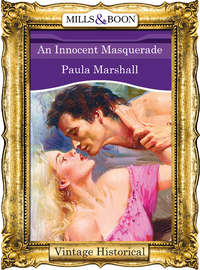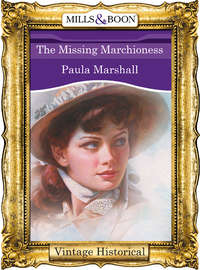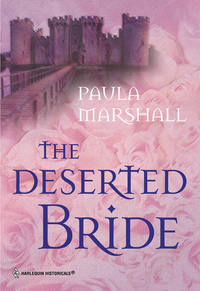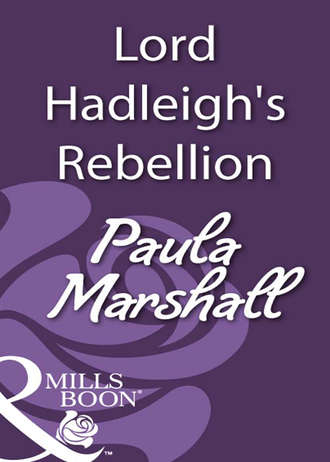
Полная версия
Lord Hadleigh's Rebellion
A large number of visitors were arriving that late April afternoon. There were several carriages on the gravel sweep before the main doorway, which was actually a gate which opened on to a quadrangle around which the original house had been built. A bevy of footmen, grooms, coachmen and various servants were carrying luggage into the Hall.
Two footmen, one of them carrying a large green umbrella, ran forward to greet Mary’s driver and to open the door of her chaise for her so that she might descend and be escorted indoors, together with her maid, Jennie, and her companion, Miss Eliza Truman, away from the light rain which had begun to fall.
Inside all was beauty and comfort. Mary’s suite of rooms overlooked the rolling countryside where a folly in the shape of a ruined miniature tower stood high on a hill. Peter’s Place, it was called, after a fabulous huntsman who had run with the Quorn Hunt, Leicestershire’s pride, two hundred years ago.
Mary had scarcely time to change out of her travelling clothes into a light mauve gown and settle herself on the sofa in her little withdrawing room before the butler and a footman arrived with the tea-board.
‘Lady Markham thought that you might care for some refreshment after your journey from Oxford. We dine late here in the Great Hall. The General likes to call it supper. The family and the guests assemble in the Stuart room at the sounding of the first bell and meet to converse before the meal.’
‘Very civilised,’ murmured Mary, eyeing the teapot and the biscuits known as Bosworth Jumbles.
The butler bowed. ‘The General and his Lady send word that they hope that you will enjoy your first visit to Markham Hall. They are looking forward to meeting you again. Should any of your wants remain unsatisfied, then you have only to ring for the housekeeper, Mrs Marsden, and she will look after you.’
‘Well,’ said Miss Truman when the butler had bowed himself out, ‘I have encountered less state when my late patron visited royalty. The tea, however, is most welcome.’
Mary had forgotten what visiting her wealthy contemporaries was like. She was not sure that she wished to live a life of such formality, if only for a fortnight. She had brought her work with her, but doubted whether she would ever find time to solve the latest problem which she had encountered. Her companion, though, obviously revelled in being waited upon so assiduously, suggesting that they might ring the housekeeper for more hot water when they had drunk their first cup.
The rain outside had stopped and the sun was shining. Mary said, ‘Do so, by all means, but I should wish to take a walk in the grounds. If you wish to rest after our journey, there is no necessity for you to accompany me.’
‘At least take your maid with you. It will be expected.’
Mary sighed. Peace and quiet was all that she wanted. ‘Indeed, no,’ she replied gently. ‘I am sure that I shall be perfectly safe.’
‘But who will carry your umbrella?’
‘Why, I shall. Now, will you please excuse me? I shall not be long.’
Her umbrella in her hand, a short jacket over her dress, Mary made her way downstairs and out into the open after asking a somewhat surprised footman the best way into the gardens. He escorted her to a large door at the back. One path from it led to the stables, another to a series of formal gardens before taking a sharp turn into the Park itself.
The gardens had been improved during the last century, almost certainly by Capability Brown, Mary decided, before she ventured into the Park where she admired in turn the ornamental bridges, the artfully placed stands of trees, and the lake and its miniature stone quay where two small pleasure boats were moored.
Mary was compelled to admit that everything she saw pleased her, particularly the fact that she was the only person present to admire the unfolding vistas which Brown had so carefully devised. The scene before her was so beautiful that she began to wish that she had not left her sketchbook and water-colour paints at home. For a time she sat on a rustic bench placed exactly where the view before her was at its most lovely, and it was with a sigh that she rose and returned to the Hall.
A different route back through the formal gardens seemed a good idea until she heard men’s voices coming from one of them when she approached the trellised archway which led into it. She was about to turn and retrace her steps in order to avoid them when she heard a voice which memory told her was familiar.
No! It could not be him! It could not!
He spoke again, and laughed at the end of a remark which set the rest of those present laughing, and this time she was sure that she recognised the voice of the man who had made it. Whatever the cost she must find out if her supposition was correct so that she might be prepared when she met him later at dinner. To have come upon him without warning would have challenged even her own calm self-control which was legendary among those who knew her.
She moved forward in order to look into the enclosed garden so that she might see the company assembled there, but not be seen by them. And yes, it was indeed Russell Hadleigh whom she thought that she had heard, whose pleasant baritone voice she had immediately recognised, even though it had been thirteen years since she had last listened to him speaking.
He was seated among a group of young men before an iron table on which stood, not tea, but bottles of port, Madeira and white wine. Unbuttoned might be the best word to describe them all, including Russell, Mary thought wryly, especially, perhaps, Russell. She also recognised Peregrine Markham, her host’s son and heir, but the other young bloods were unknown to her. It was, perhaps, fortunate, she thought later, that she was not near enough to hear what they were saying—which, judging by the nature of their laughter, was not very proper.
Peregrine Markham suddenly stood up, which set her moving away before she could be seen and recognised. She had no wish to speak to any of them, let alone Russell Hadleigh, before she had had time to compose herself. Indeed, how she made her way safely back to her room she never knew, her brain was in such a whirl.
Mary had hoped never to see him again, and had she known that he, too, was going to be a visitor at Markham Hall, she would never have given in to Lady Leominster’s bullying and agreed to go there. By great good luck, though, seeing him without his being aware of her presence meant that she could prepare herself for the inevitable moment when they would meet before dinner. It was essential that he should not know how much the mere sight of him still had the power to disturb her.
The disturbance was, of course, ridiculous. How could his betrayal of her thirteen years ago still have the power to upset her? Worse than that, how could the mere glimpse of him set her heart beating so rapidly as though it were only a day since he had last walked away from her after giving her such a loving kiss?
The Judas kiss of treachery, she had thought later. The memory of it had caused her so many bitter tears until, as the years passed, she began to forget him and his broken promises—which made her present strong reaction to him so unexpected.
I grow maudlin, to allow him to affect me so powerfully. Why, I even started to ask myself whether he would recognise me, as I recognised him. Oh, he has changed. He is no longer a handsome, slim boy, but a man with a cynical face, all that charming innocence which he once possessed has quite gone.
‘My dear, have you been over-exerting yourself?’ asked her companion when she re-entered their drawing-room. ‘You look quite flushed. I do believe that it was a mistake to undertake a walk after a hard day’s travelling.’
‘Not at all,’ Mary replied, a little distressed that her recent experience had overset her to the degree that Miss Truman was able to remark upon it. ‘What you are seeing is merely the glow of exercise’—and what a lie that was! ‘The grounds are quite remarkable and worthy of the brush of a master painter.’
‘Indeed,’ said Miss Truman, quite deceived by this explanation. ‘I have read about their excellence, and now I am privileged to enjoy it. I have also heard that the General’s chef is known for his excellence and I am looking forward to dinner—or supper, as always he calls it—with the keenest anticipation.’
Would that I were, was Mary’s internal reaction to that!
Russell Hadleigh was not feeling much keen anticipation, either. He had not yet met the young woman whom his father, and hers, intended that he should marry, but was shortly about to do so. He had met her brother, Peregrine, always known to his associates as Perry, several times before, and had taken him in mild dislike. The notion of him as a brother-in-law did not attract.
Perry Markham was a gambler who took losing badly. Despite his recent bout at the tables, gambling was not an addiction with Russell. He could take it or leave it. It occasionally served to relieve a little his boredom with his empty existence. He could not understand a man allowing it to dominate his life as Perry Markham allowed it to dominate his. He wondered whether the General knew exactly how much his son was losing at the tables—and how much he was drinking to cover the pain of his losses there.
Russell had forsworn drinking that afternoon for the amusement of watching the others indulge themselves overmuch. It was during a pause in the idle conversation of young fellows with too much time on their hands, and too little to do in it, that he had seen a female hovering near the arch which led into the garden in which they sat. He could not quite see her face, but he thought that she looked young—or had he hoped that?
He had hoped that she might enter and bring a little brightness to an afternoon which was dull despite the sun which had begun to smile on them all. Alas, the sight of so many young fools—and he counted himself among them—must have caused her to turn away and deprive them of the pleasure of her presence.
Now his valet was dressing him for the evening with his usual loving care. It was an odd existence, he thought, which turned so much on dress and the other minor minutiae of a man’s existence. He had recently asked his father if, when the next election came along, he might be allowed to stand at one of the seats which the family controlled—a small borough whose name gave him his title. To become an MP would give him an interest in life and allow him to bring some experience of power and management to the time when he finally inherited.
‘You are not ready to do that, sir. Nor steady enough,’ his father had growled at him.
‘I am older than Lord Granville was when he first went into Parliament, and quite as steady,’ he had replied.
‘But you are not Lord Granville,’ his father had snorted.
What could he say to that, other than, ‘But I understand that he was only in his early twenties when he became an MP and I am over thirty. By then he had been an Ambassador to Russia.’
This did not answer, either. He wondered afterwards why his father had taken him in such dislike that he would not give him the opportunities which other heirs to noble names had been offered. Had what had happened thirteen years ago been enough to damn him as a serious person? Surely not—but the thought was always there.
Instead he was at Markham Hall to propose marriage to a young woman whom the on dits said was a frivolous, flighty piece—and that solely to please his father and not himself. Well, he was about to find out whether the on dits spoke truly or were simply baseless rumours.
Downstairs he found himself before the Tudor drawing room which opened on to the Great Hall where the General and Lady Markham, Perry and Angelica standing beside them, were receiving their guests. Angelica was pretty enough and fortunately bore little resemblance to her brother Perry, whose looks were not of the first stare, to say the least.
‘I understand that you are acquainted with my son, Peregrine,’ the General said, ‘but I believe that you have not yet been introduced to my daughter, Angelica.’
Russell allowed that he had not and turned his attention to her—to find that she was a beauty in the current mode, with bright blue eyes, flaxen ringlets and a prettily rounded figure beneath a pink silk frock decorated with cream rosebuds. She offered a curtsy to his low bow and simpered at him, saying in a little girl’s fluting voice, ‘So happy to meet you at last, Lord Hadleigh. I have heard much of you from my brother.’
Had she, indeed? And was that a recommendation or not?
‘And I am delighted to meet you, Miss Markham.’
‘Oh, please call her Angelica,’ interrupted Lady Markham cordially. ‘We are all friends here, I trust.’
‘Angelica.’ He smiled and bowed again. ‘So I must be Russell.’
It was the least he could say. He could only wonder what her conversation would be like. Well, he would shortly find out, for his valet had informed him that the Servants’ Hall had it that he was to sit next to her at dinner. Her conversation? Had he run mad? Persons of his rank married young women for their dowry, not their conversation.
He gave a bow and a nod to Perry, who also simpered at him. After the General and his Lady’s enthusiastic reception of him, Russell dismally realised that they, and his father, and now Perry, had settled between them that he was to marry Angelica. He wondered what all the hurry was about.
At last he was free to enter the drawing room, which was rapidly filling up with the General’s guests, most of whom knew one another. It was his duty to be pleasant to the other guests, and one thing which Russell did know was how to be pleasant. He thought that he might even be able to do it in his sleep!
It was when he had finished talking to the Honourable Mrs Robert Chevenix, whose husband was a crony of his father’s, that he saw a young woman sitting beside a middle-aged female who was obviously her companion. The young woman’s dark head was turned away from him, but there was something strangely familiar about her whole posture. It was not until she turned towards him, and he at last saw her face, that he knew who she was.
Mary Beauregard! Mary, his lost love whom he had last seen thirteen years ago. Somewhat to his surprise, she was still very much like the young girl he had once known. Oh, her face had matured, but in the doing had served only to add to her quiet beauty, not detract from it. Her skin was as creamy as he remembered it, and her dark eyes…
Those dark eyes in which he had once drowned—he would never forget them. Those eyes that, alas, were faithless like the lips which had promised him eternal love when he had last seen her. An eternal love which had only lasted a week.
Now, thirteen years later, he ought to be able to look at her coldly without the sight of her enchanting him as it had once done, but he couldn’t, and what sort of man did that make of him? It was a question which he did not immediately answer, because at that moment she saw him. Instead, a new question sprang into his mind.
What did she see when she looked at him?
Was she as inwardly disturbed as he was?
Only the eye of love, or of hate, could detect the faintest quiver of her mouth, or the hand which shook when she raised it to smooth down the fichu of her dowdy dress, but Russell saw both telltale signs and wondered which of the two contrary emotions was afflicting him and, quite possibly, her.
He bowed, his face, usually so mobile, a mask—the impassive mask which he wore when he chose to play cards. He said as coolly and distantly as common politeness would allow, no more, no less, ‘Mrs Wardour, I believe. We meet again after many years.’
Mary looked up at him. Near to, as he had seen the changes time had wrought in her, she saw more plainly those which had altered him. One thing that struck her again was the cynicism written on his face, in the curl of his lip, in the knowing eyes which looked at her, and seemed to dismiss her.
‘Yes,’ she replied, as cool as he. ‘I am, however, now the widow of Dr Henry Wardour.’
This statement shocked Russell out of his deliberately chosen indifference to her and the company in which they found themselves.
‘I must commiserate with you upon his death, he must have been a good age.’
‘But not so very old,’ she riposted. Mary would never have supposed that she could outface her one-time love to the point where she retained her self-control and he did not. ‘He was only in his early fifties. Such a difference in age on marriage is a commonplace in our society. Indeed, I gather that you are here invited here as a possible suitor for Miss Markham so I find your surprise at my marriage a little misplaced.’
What in the world had happened to the ardent young woman whom he had once loved that she could speak to him in the tones of a cold shrew?
‘Your rebuke is a just one,’ he admitted, and could not say more, for at that point they were joined by Perry Markham, since the Markhams’ reception line had ended and dinner was almost upon them.
‘So, Hadleigh, you have already made yourself known to Mrs Wardour, but then, no pretty woman ever fails to gain your attention, eh,’ and he poked a stiff finger into Russell’s ribs which set him moving away.
‘You mistake, Markham. Mrs Wardour and I knew one another many years ago—and we were renewing an old acquaintance, were we not?’
Mary’s response to that was to offer both men a stiff smile.
‘Too many years ago for us to be able to claim that we are old friends,’ she said.
If this frosty answer surprised Perry Markham it did not surprise Russell.
‘Well, in that case, old fellow,’ went on Perry, smiling at Mary, ‘I shall not be encroaching on a long-time friendship if I inform you that I am to escort Mrs Wardour into dinner. But fear not, you are to take in my sister Angelica, who cannot wait to further her acquaintance with you. She will be along any moment to claim you, so you will forgive me if I ask Mrs Wardour to join me so that I may show her my father’s famous collection of porcelain.’
Both Russell and Mary were only too pleased to end their unwanted and unhappy tête-à-tête—with the exception that Mary had no wish to become more intimate with Perry, and Russell was not greatly looking forward to squiring Angelica, whom he suspected was exactly the kind of vacuous young creature whom he had always tried to avoid.
However, they both separately thought that in an imperfect world one cannot always have exactly what one wants—which was a conclusion which they both took into dinner with them!
The Great Hall was justly named. It was hung with faded banners covered with the honours of bygone battles. The dining table ran the length of the room before a giant hearth. On the wall facing the hearth were placed antique Tudor settles before low wooden tables. Flambeaux provided light even on this spring evening for the Hall’s windows were high and small and their glass panes were dull with age. All in all it was scarcely a friendly place, and the formality which seemed a feature of the Markham household was very present in it.
Matters were not helped for Russell by Angelica having been placed on his left hand and Mary on his right. Mary had Perry Markham on her right and he was monopolising her attention while Angelica was doing the same for Russell. Unfortunately, her conversational powers were as limited as he had feared.
Having assured her that he had been to Astley’s Amphitheatre, the home of horses, and acrobatics, but not lately, he then had to confess that he had not been overly impressed with Master Betty, the famous boy actor. Yes, he had seen the ballet at the Opera House, but no, he was not greatly taken by that either.
‘What, then, do you prefer?’ she simpered at him.
‘Shakespeare,’ he told her, ‘in particular when Kemble plays the great parts, such as Othello, Hamlet and Macbeth, but his brother Charles is also admirable in lighter roles.’
‘Oh, Shakespeare!’ She pouted. ‘I was taken to see Macbeth in my come-out year. What a disappointment! Everyone was ranting at everyone else and people were being killed on stage. I wonder that anyone should pay to go to see such dreadful things.’
She ended with a delicate shudder and a widening of her blue eyes. ‘On the other hand, I quite liked As You Like It when they made it into a pantomime. The clowns were so funny, much better than all that boring talk. Have you visited the Prince Regent’s home at Brighton? They say it is most fantastic. I confess that I was greatly surprised when I was presented to him. He was so fat and ugly—and so old. I cannot abide old men and women.’
‘Yes,’ Russell said, ‘I have visited the Pavilion and quite like it. As for the Regent being old, I fear that, if we live long enough, we all come to that in the end.’
Angelica’s shudder was a prolonged one this time. ‘Pray do not let us speak of it. Tell me, have you read The Secret of Harrenden Castle? Now there is a horrid book which I do like—you never actually see the bodies in it.’
So this was the woman whom his father wished him to marry! Had he given up his lively Caroline for this vacuous young thing? He thought of his brother’s wife Pandora with her frank ways and her keen interest in everything about her. Now there was a treasure if there ever was one, even if she were something of a surprising treasure for quiet Ritchie to have won.
Angelica, who, to give her her due, was finding it as difficult to talk to Lord Hadleigh as Lord Hadleigh was finding it difficult to listen to her, gave up at this point. Why did her papa wish her to marry this dull old man? She had imagined that he might be a jolly fellow like Perry and his friends, but no such thing. He was as solemn as a judge and as dreary as the parson on Sunday morning when he was droning on and on in his sermon.
All in all, it was a great relief for them both when the dinner ended and the ladies withdrew to leave the gentlemen to their cigars and their port. But not before Russell, the devil prompting him, had leaned sideways to whisper in Mary’s pretty little ear, ‘Are you finding all this as tedious as I am?’
Mary, who had been as bored by Perry as Russell had been by his sister, said sharply, ‘Indeed not, and if I were it would be a gross insult to our hosts’ hospitality to say so.’
Russell bowed his head and murmured, ‘Rightly rebuked. You were always much more aware of the niceties of life than I was.’
‘Was I, m’lord? I fear that I have quite forgot the details of any conversations which we might once have had,’ and she turned away from him to address Perry again, as though to speak to him was wearisome.
The anger which seemed to overcome Russell these days was upon him again. He murmured to her back, ‘Now, madam, that I do not believe, nor should you ask me to believe it.’
Mary’s head swung sharply round. ‘What you might believe, m’lord, is a matter of total indifference to me. Pray allow that to terminate our conversation,’ and she turned away from him again to address a bemused Perry.
‘I had not understood that you were so well-acquainted with Lord Hadleigh, Mrs Wardour.’
‘Once, long ago,’ she replied as carelessly as she could, and, more to punish Russell than because she wished to ingratiate herself with Perry Markham, added, most graciously, ‘Pray call me Mary, Mr Markham.’
‘Only if you will address me as Perry,’ he responded gallantly.
Angelica had found the young Honourable Thomas Bertram, known by his friends as the Hon. Tom, to be a more amusing dinner companion than Russell, who now whispered into Mary’s ear, ‘If we are all to be so informal, Mrs Wardour, then you might oblige me by calling me Russell—as you once did.’
She swung round again, to murmur under her breath so that Perry might not catch what she was saying, ‘Certainly not, you forfeited that right long ago. Pray cease to badger me: it is not the act of a gentleman to twit a lady so mercilessly.’
Well, that was that, was it not? And Russell, who was already regretting his baiting of Mary, said slowly, ‘I apologise, Mrs Wardour, but the temptation to address you as I might once have done was too great for me.’


